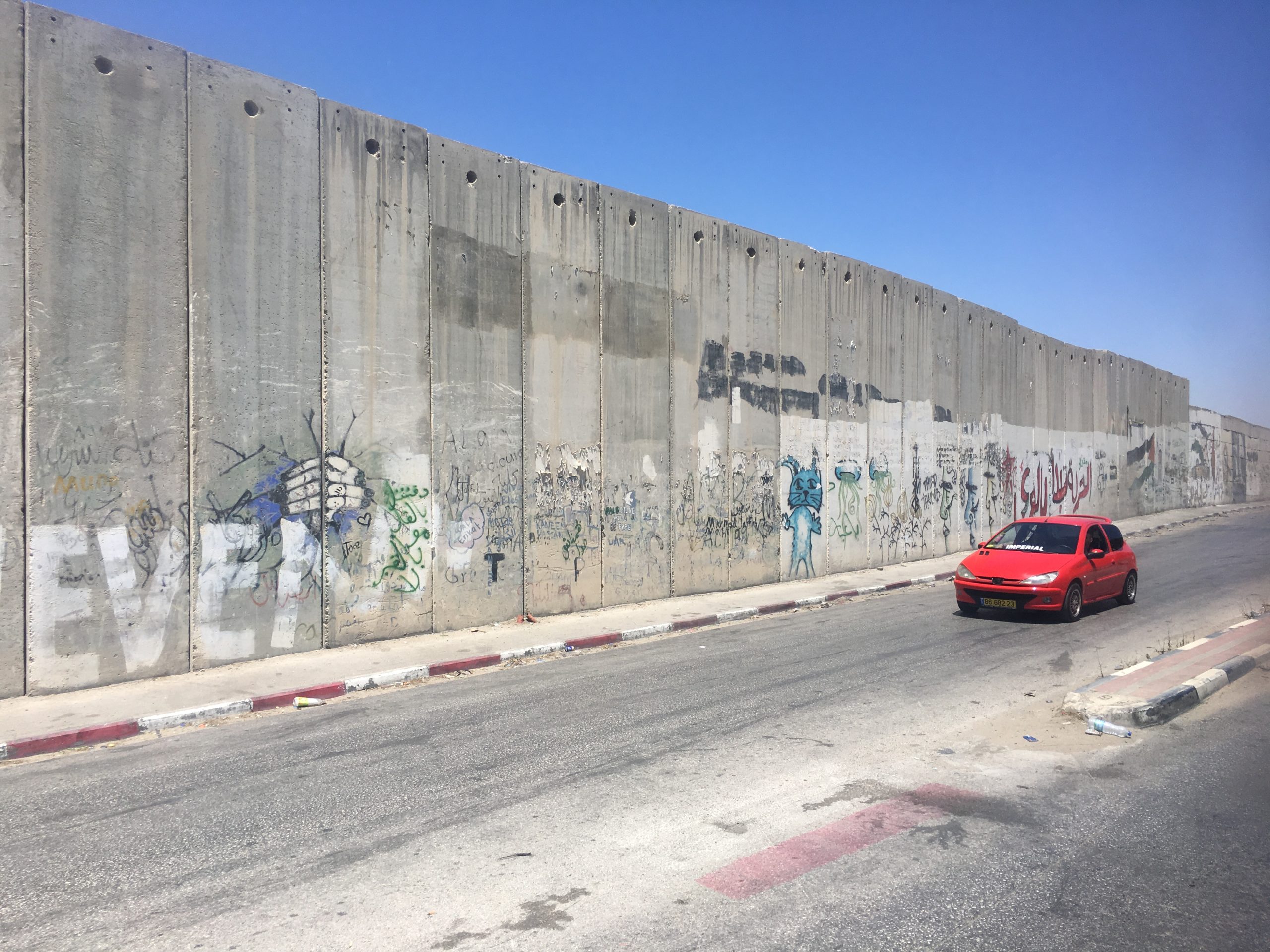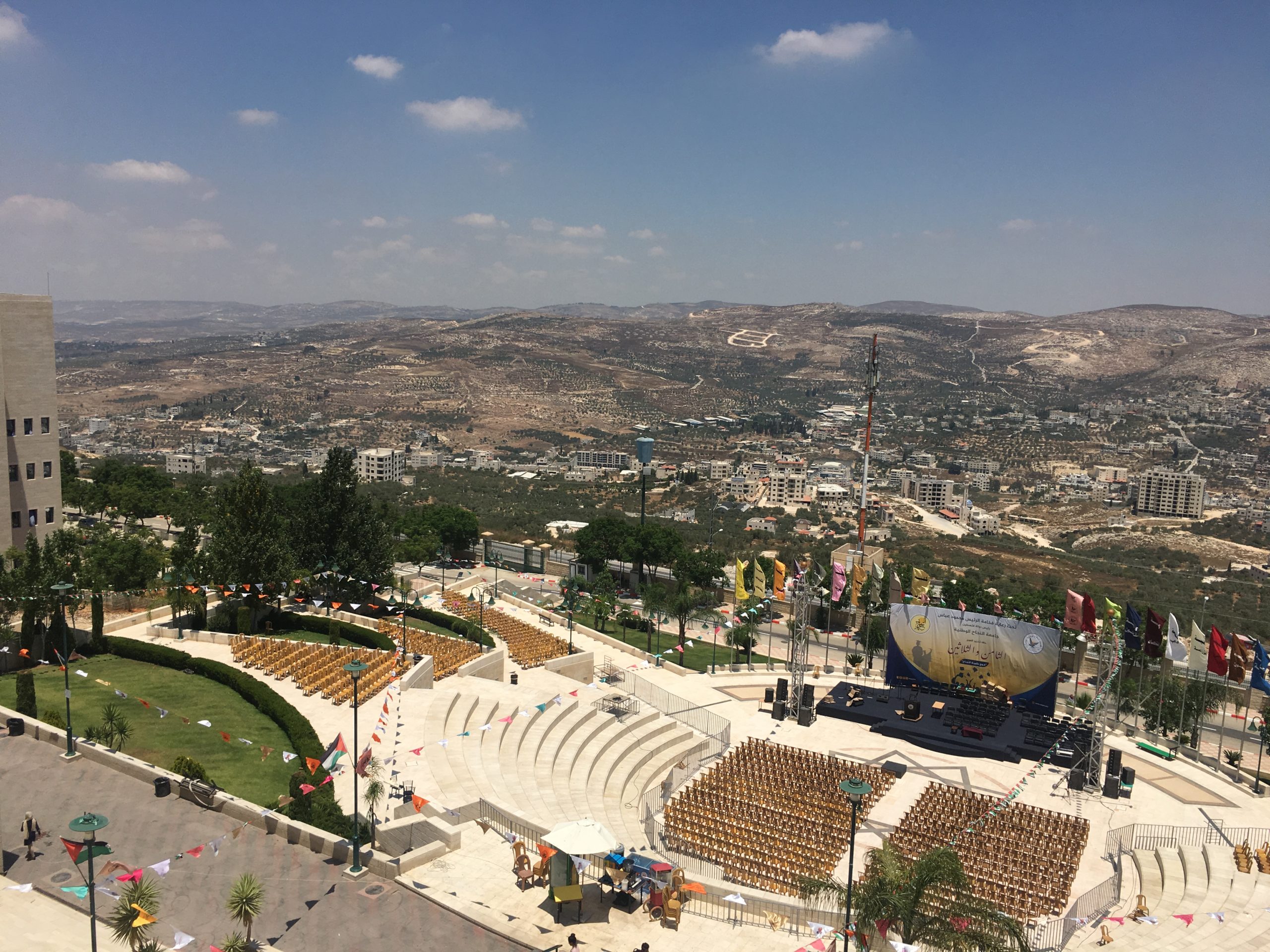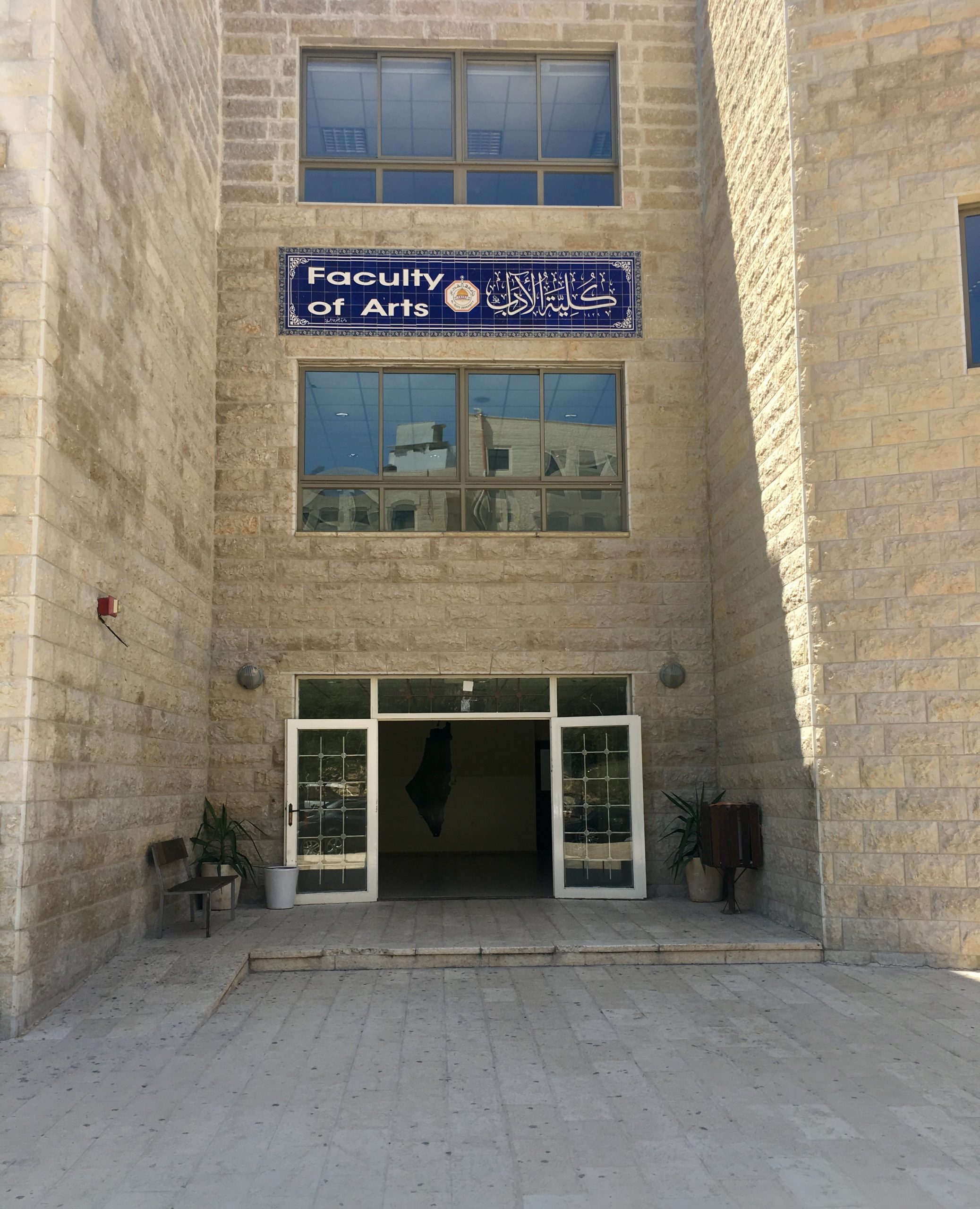
By Sophia Brown, 2018 CBRL Visiting Fellow at the Kenyon Institute in East Jerusalem and Associate Lecturer in the Department of English and Comparative Literature at Goldsmiths, University of London.
Undertaking fieldwork is not straightforward for an early-career researcher – especially, I’ve found, if you’re a scholar of literature. This is why my research fellowship at CBRL’s Kenyon Institute in East Jerusalem has been so important to me. Indeed, this has been my first period of funded research in over two and a half years and my first visit back to the region since 2015.
While here, my main objective has been to work on my first monograph, which is based on my PhD thesis. I was awarded my PhD a year ago and my thesis explored Palestinian life writing in English – a flourishing yet understudied area of literature. I focused in particular on the representation of displacement against the backdrop of an ongoing conflict and my plans for the monograph are to take this research considerably further by also reflecting on the publication and reception of Palestinian life writing. Being able to spend proper time on the project – starting right from scratch with drafting a book proposal! – has made a real difference to my conception of the book.
Broadly speaking, my work argues that Palestinian life writing should be read as literary testimony that poses an urgent and necessary counternarrative to the hegemony of the Israeli discourse on Palestine/Israel. I examine life writing by different generations of Palestinians, from those who experienced the Nakba (‘Catastrophe’) of 1948, to those born as second-generation Palestinians in their parents’ adopted homelands. This means being attentive to the work of those who remain at a geographical distance to Palestine/Israel, as well as those who do, or have, lived under Israeli military occupation. The authors I’ve looked at include Edward Said, Najla Said, Raja Shehadeh, Suad Amiry and Sahar Hamouda, all of whom have published powerful examples of life writing that I believe deserve further critical attention.
As well as spending so much time in Jerusalem, a place that frequently recurs in my research, one of the highlights of my fellowship has been a visit I made to An-Najah University in Nablus. I met with Dr Ahmad Qabaha, Assistant Professor in Postcolonial, Comparative and American Studies, who I was lucky enough to connect with through the relatively small world of academics working on Palestinian literature. Mindful of our shared research interests, Ahmad kindly invited me to join him in leading a seminar he was teaching on literature of exile. As it happened, the students were studying Ghada Karmi’s work, whose memoirs I discussed in detail in my thesis and will also analyse in my monograph.

I have never previously had the opportunity to discuss my own research with a classroom of Palestinian students, or to hear their thoughts on Palestinian literature, and so it was a wonderful opportunity to get their perspective on Karmi’s work and to see how they responded to my own observations. I had always wondered to what extent Karmi’s narration of exile and Palestinian identity would resonate with contemporary Palestinian readers in Palestine and it was genuinely enlightening to find out what they related to and what didn’t correspond with their own experience.

Visiting An-Najah has also spurred me on to visit other Palestinian universities this summer, including Al-Quds University, Bethlehem University and Birzeit University (where I studied for a term in 2013 under the PAS Program). While this wasn’t my intention when setting out for Jerusalem with only my monograph in mind, it has become an important component of my fellowship – and a reminder of exactly why I seek to undertake fieldwork in the first place.
As detailed here, conditions at Palestinian universities remain challenging, to say the least, and I have become increasingly concerned about the restrictions placed on fellow academics. As a scholar committed to the region, I feel it’s important to talk about these issues and to forge meaningful connections with Palestinian academics and students who have to contend with the Israeli occupation and the disruptions it causes to education and research. So, I am currently writing an article about higher education in Palestine and will return to the UK with many new academic contacts who I’m excited to keep in touch with and hopefully work with in the foreseeable future.
Sophia Brown holds a PhD in Postcolonial Studies from the School of English, University of Kent. Her thesis examined Palestinian life writing, focusing in particular on the narration of exile. At the Kenyon Institute, she is undertaking additional fieldwork and working on her first monograph, based on the thesis.
The views expressed by our authors on the CBRL blog are not necessarily endorsed by CBRL, but are commended as contributing to public debate.














